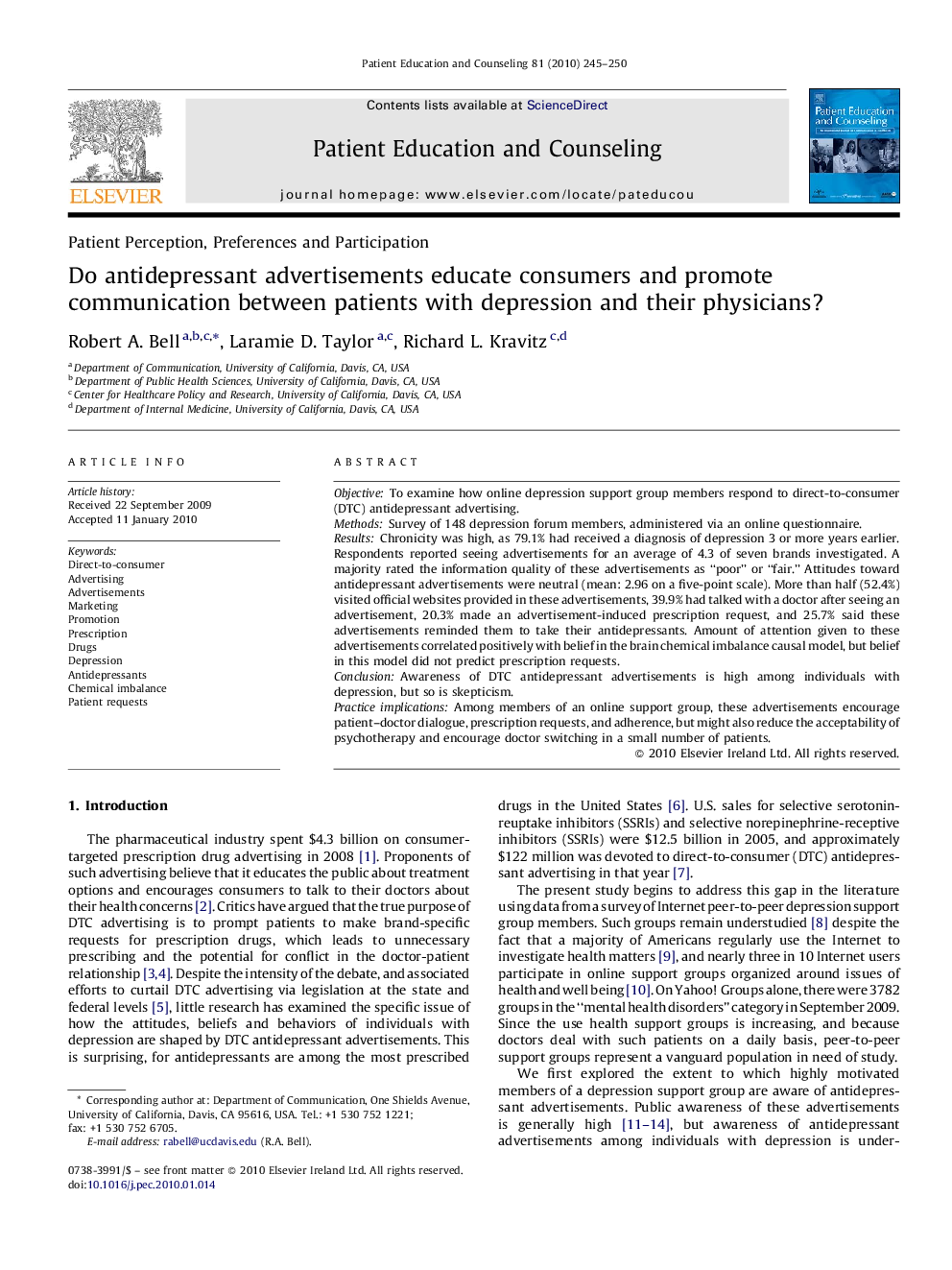| کد مقاله | کد نشریه | سال انتشار | مقاله انگلیسی | نسخه تمام متن |
|---|---|---|---|---|
| 3814695 | 1246030 | 2010 | 6 صفحه PDF | دانلود رایگان |

ObjectiveTo examine how online depression support group members respond to direct-to-consumer (DTC) antidepressant advertising.MethodsSurvey of 148 depression forum members, administered via an online questionnaire.ResultsChronicity was high, as 79.1% had received a diagnosis of depression 3 or more years earlier. Respondents reported seeing advertisements for an average of 4.3 of seven brands investigated. A majority rated the information quality of these advertisements as “poor” or “fair.” Attitudes toward antidepressant advertisements were neutral (mean: 2.96 on a five-point scale). More than half (52.4%) visited official websites provided in these advertisements, 39.9% had talked with a doctor after seeing an advertisement, 20.3% made an advertisement-induced prescription request, and 25.7% said these advertisements reminded them to take their antidepressants. Amount of attention given to these advertisements correlated positively with belief in the brain chemical imbalance causal model, but belief in this model did not predict prescription requests.ConclusionAwareness of DTC antidepressant advertisements is high among individuals with depression, but so is skepticism.Practice implicationsAmong members of an online support group, these advertisements encourage patient–doctor dialogue, prescription requests, and adherence, but might also reduce the acceptability of psychotherapy and encourage doctor switching in a small number of patients.
Journal: Patient Education and Counseling - Volume 81, Issue 2, November 2010, Pages 245–250